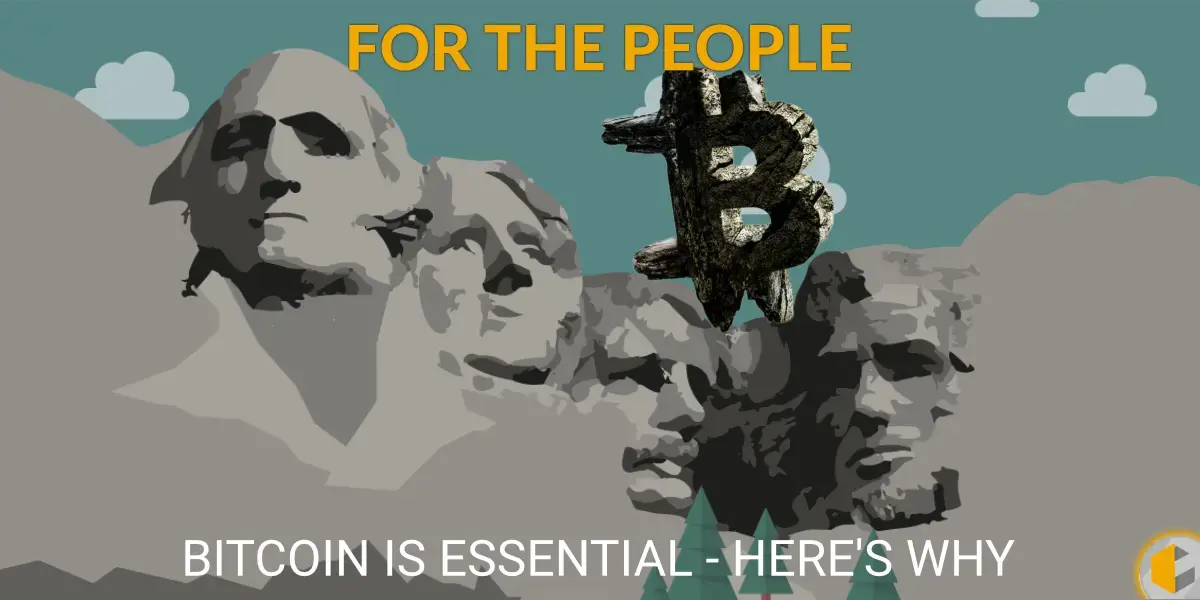
Following on from Why Bitcoin is essential for the people — Part 1, we explore why quantitative easing (QE) has made bitcoin more attractive than ever.
Why Does QE Matter Today
After the novel coronavirus pandemic, the US Federal Reserve, as well as the US Federal Government, has taken a variety of steps to help spur on the economy in these unprecedented times. The most publicised of these efforts have been the distribution of relief checks to people who meet a variety of criteria, commonly known as the CARE Act. Slightly less publicised, however, has been the Federal Reserve’s role in helping the economy back onto its feet. In mid-March, the Federal Reserve released some guidelines outlining new emergency powers to help tackle the economic crisis. Principle among these include the Fed’s decision to slash interest rates to zero, and a brand-new round of QE to the tune of $700 million. In the following months to the current day, the Federal Reserve introduced a variety of financial tools and buyback programs, such as the purchasing of corporate bonds, to feed liquidity into an uncertain market. In short, thanks to the coronavirus pandemic, quantitative easing with all its trappings are back on the menu.
The Effects of Quantitative Easing on Bitcoin
While quantitative easing has a negative effect on the value of money through inflation, Bitcoin, as well as other cryptocurrencies, completely sidestep this problem. Some economists have argued that quantitative easing, by devaluing fiat currency, has gradually contributed to Bitcoin’s astronomical rise, as investors seek to protect their wealth in anti-inflationary assets like Bitcoin. In effect, Bitcoin is acting in a similar niche to gold: as a haven for money during economic uncertainty. Of course, Bitcoin, and cryptocurrencies in general, are far more volatile than physical commodities like gold, but the effect has been notable. A prime example of Bitcoin safeguarding one’s wealth from inflation is the Venezuelan Bolivar. If you had converted any Venezuelan Bolivars owned when that currency was its low point to BTC, you would have come up far ahead than if you had simply held on to Bolivars.
The Argument Against Bitcoin As a Store of Value
Bitcoin has a fixed total supply, at some 21 million units, which means that it isn’t an infinite resource like fiat currency can theoretically be. That doesn’t mean, however, that Bitcoin’s value is independent of other asset classes. In fact, some assessments of Bitcoin have found that Bitcoin and the stock market have a correlation of 0.6. This indicates that there is a reasonably strong correlation between the two, with a 1.0 correlations representing a perfect 1 to 1 correlation. Furthermore, Bitcoin is highly volatile compared to most traditional stores of value, like gold and the stock market, which can make it less attractive to those who are looking for more stability, not less.
The Future of QE and Crypto
The jury is still out on the exact effects quantitative easing programs will ultimately have on cryptocurrencies like Bitcoin. While economic uncertainties do tend to help the value of haven assets, this particular pandemic poses a dilemma for researchers because its severity has people rushing to sell many of their assets to cover outstanding debts and bills. This means that unless the US dollar’s value drops precipitously, it might be some time before the exact nature of QE on crypto could be determined. On the flip side, as was noticeable in the stock market, cash injections like those offered by the Feds inflate assets like gold and even cryptocurrencies in the short term. What this pandemic has exposed in particular is a strong need for a decentralised global economy, which would be a massive gain for blockchain and cryptocurrency enthusiasts, and ultimately hastening their implementation and viability in the broader world.
Editor-in Chief
Related Posts






Subscribe to our newsletter!
Information


